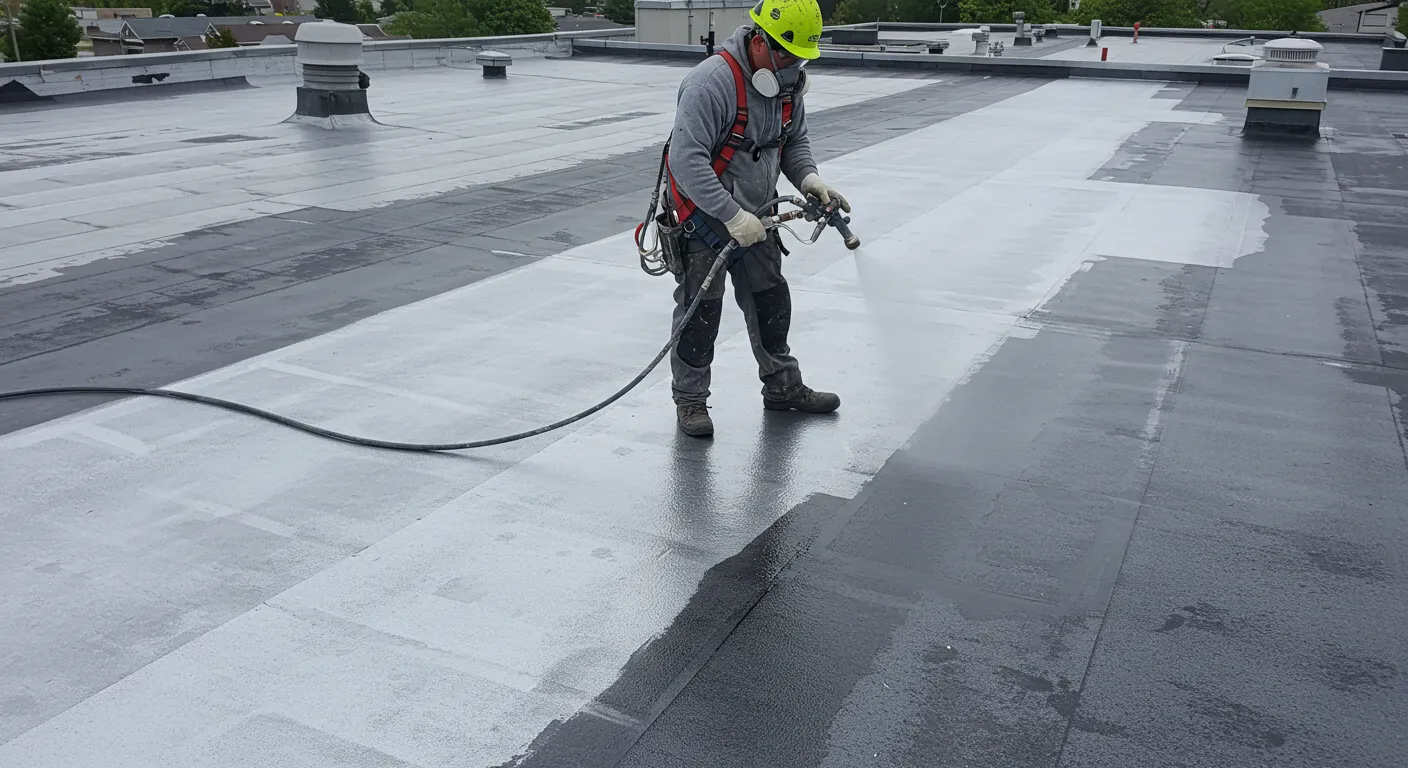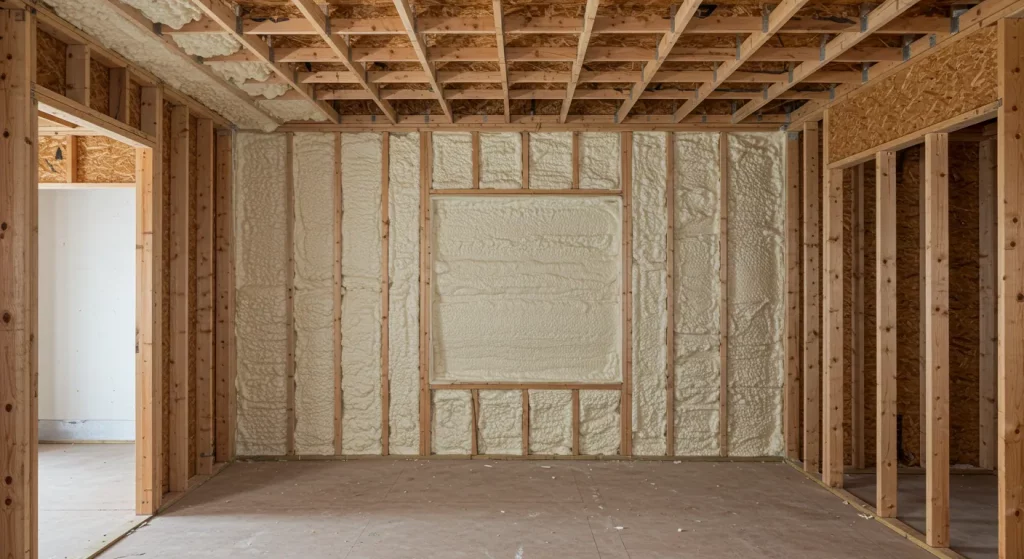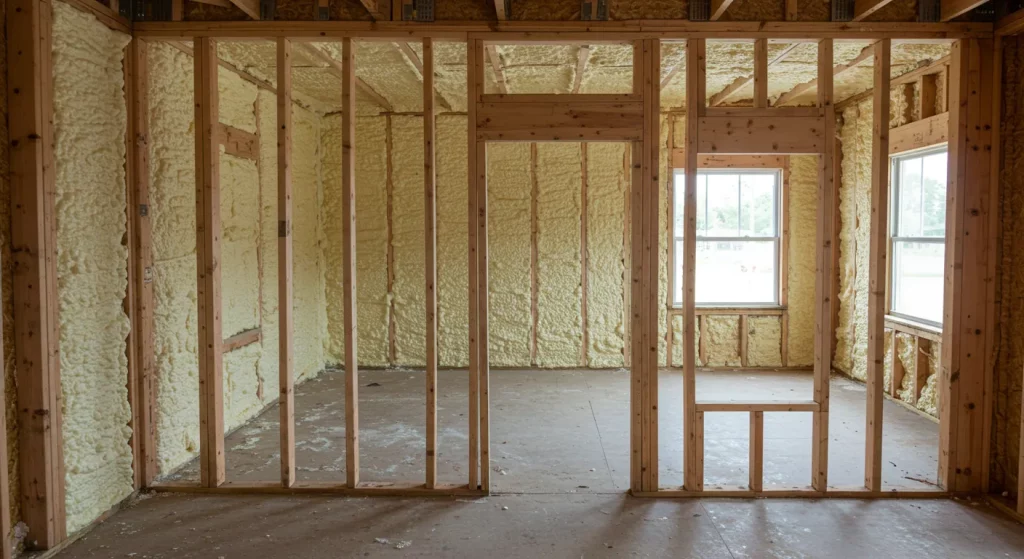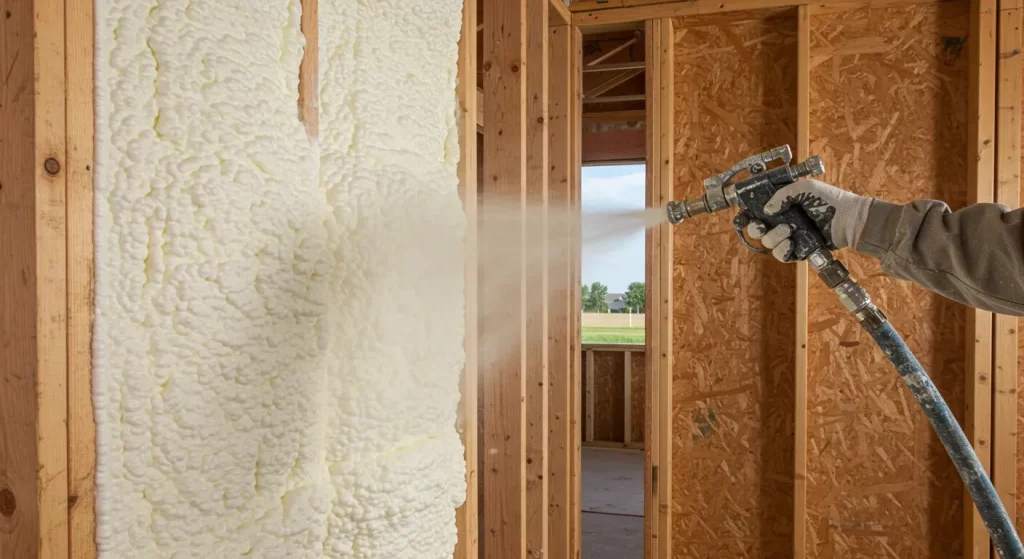Cary homeowners should rethink roof insulation because traditional methods often fail to address the region’s unique climate challenges, including hot, humid summers and unpredictable winter temperatures. Modern spray foam insulation provides superior thermal performance, moisture control, and energy efficiency compared to conventional materials like fiberglass or cellulose. The decision to upgrade roof insulation becomes critical when energy bills climb, comfort levels drop, or moisture issues develop in attic spaces.
North Carolina’s subtropical climate creates specific insulation demands that standard materials struggle to meet. Raleigh Excel Spray Foam Insulation has observed that homes with inadequate roof insulation experience temperature fluctuations of 15-20 degrees between floors, increased HVAC runtime, and higher utility costs. This comprehensive analysis examines why homeowners should reconsider their current insulation strategy and explore advanced solutions.
Climate-Specific Challenges in Cary
Cary’s weather patterns create unique insulation requirements that differ significantly from northern climates. Summer temperatures regularly exceed 90°F with humidity levels reaching 70-80%, while winter lows can drop to the mid-20s. These conditions demand insulation materials that perform consistently across extreme temperature ranges while managing moisture effectively.
Bonus Tip: Check attic temperatures during peak summer hours. If the space exceeds 130°F, inadequate insulation is allowing excessive heat transfer into living areas.
Traditional insulation materials lose effectiveness when exposed to moisture, which is particularly problematic in North Carolina’s humid environment. Fiberglass batts can lose up to 40% of their insulating value when moisture content increases, creating thermal bridging and reducing overall system performance.
Insulation Performance Comparison
| Insulation Type | R-Value per Inch | Moisture Resistance | Air Sealing Capability | Lifespan |
|---|---|---|---|---|
| Closed-Cell Spray Foam | R-6.5 | Excellent | Complete | 30+ years |
| Open-Cell Spray Foam | R-3.8 | Good | Excellent | 25+ years |
| Fiberglass Batts | R-3.1 | Poor | None | 15-20 years |
| Cellulose | R-3.2 | Fair | Limited | 20-25 years |
Technical Specifications for Roof Insulation
| Performance Metric | Recommended Value | Standard Materials | Spray Foam |
|---|---|---|---|
| Thermal Resistance | R-38 minimum | R-30-35 typical | R-40-50 achievable |
| Air Leakage Rate | <3 ACH50 | 5-8 ACH50 | 1-2 ACH50 |
| Moisture Permeability | <1 perm | 5-10 perms | 0.8-1.6 perms |
| Temperature Stability | -40°F to 180°F | Limited range | Full range |
Energy Efficiency Impact
According to the Department of Energy, proper roof insulation can reduce heating and cooling costs by 15-30% annually. The payback period for upgraded insulation typically ranges from 3-7 years, depending on current system efficiency and energy usage patterns.
Modern insulation materials also contribute to improved HVAC system longevity. When roof insulation prevents extreme temperature fluctuations, heating and cooling equipment operates more efficiently and experiences less stress. This reduces maintenance requirements and extends equipment life by an average of 2-3 years.
Bonus Tip: Monitor monthly energy usage patterns. Homes with inadequate insulation show dramatic spikes during summer months, often doubling baseline consumption.
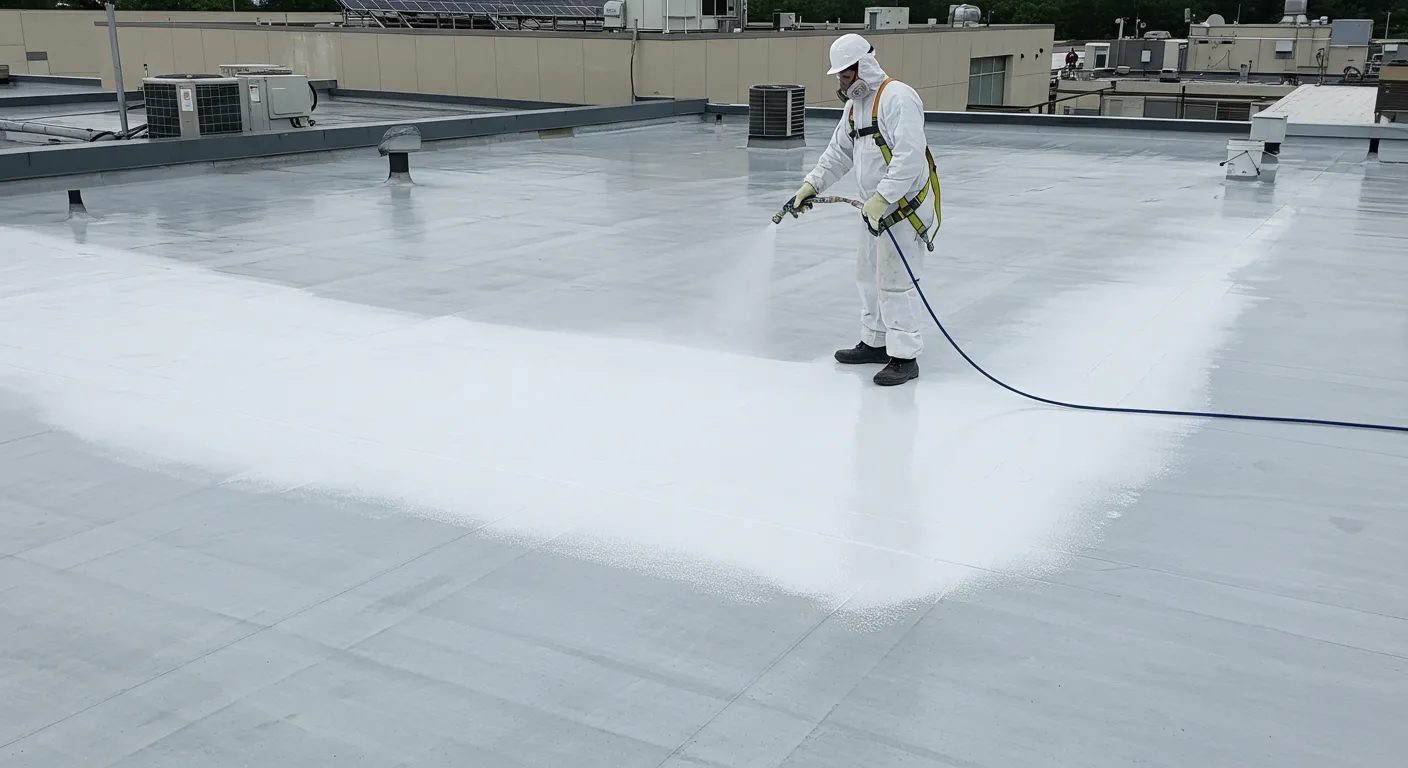
Moisture Management Considerations
North Carolina’s humidity levels create ongoing moisture challenges that traditional insulation cannot address effectively. Vapor barriers become critical components, but improper installation or material selection can trap moisture within wall and roof assemblies. This leads to mold growth, structural damage, and indoor air quality issues.
Advanced insulation systems create continuous thermal barriers that eliminate condensation points. By maintaining consistent temperatures across building envelope surfaces, these systems prevent the temperature differentials that cause moisture problems. This approach proves particularly valuable in Cary’s climate where daily temperature swings can exceed 30 degrees.
Things to Consider Before Making a Decision
Evaluate your home’s current insulation performance during extreme weather periods. Document temperature variations between floors, identify drafty areas, and assess energy usage patterns across seasonal changes. These observations provide baseline data for measuring improvement potential.
Consider the age and condition of existing insulation materials. Insulation installed more than 15 years ago may have degraded significantly, especially if moisture exposure has occurred. Older materials often contain air gaps or compression damage that reduces effectiveness.
Assess your long-term occupancy plans. Insulation upgrades provide immediate comfort benefits but reach full financial value over 5-10 year periods. Homeowners planning to relocate within 2-3 years should factor resale value improvements into their decision-making process.
Review local building codes and energy efficiency incentives. North Carolina offers various rebate programs for energy-efficient home improvements, and updated insulation may be required for certain renovation projects.
Professional Insulation Solutions
ForFor homeowners ready to upgrade their roof insulation, several specialized services address specific needs. If you’re in Wake County, consider exploring spray foam insulation in Cary NC for a tailored solution designed to meet your home’s specific climate and performance needs.
- Closed-Cell Spray Foam Insulation: provides maximum thermal resistance and moisture protection, ideal for homes with severe energy efficiency challenges or moisture concerns.
- Open-Cell Spray Foam Insulation: offers excellent air sealing properties with sound dampening benefits, perfect for homes requiring both thermal and acoustic improvements.
- Roof Insulation Services: include comprehensive assessment and installation of appropriate insulation systems tailored to specific roof configurations and performance requirements.
- Residential Spray Foam Insulation: encompasses complete home insulation solutions that address thermal bridging, air leakage, and moisture management throughout the building envelope.
Bonus Tip: Schedule insulation upgrades during mild weather periods when HVAC systems aren’t operating at peak demand. This allows for proper system testing and adjustment after installation.
Key Takeaways for Cary Homeowners
Roof insulation significantly impacts home comfort, energy efficiency, and long-term maintenance costs. Traditional materials often fail to address North Carolina’s specific climate challenges, making modern alternatives worth serious consideration. The decision to upgrade should factor in current system performance, long-term occupancy plans, and available incentive programs.
Proper insulation installation requires professional expertise to ensure optimal performance and building code compliance. Homeowners should prioritize contractors with demonstrated experience in local climate conditions and advanced insulation materials. The investment in quality insulation pays dividends through reduced energy costs, improved comfort, and enhanced home value.
Get Professional Insulation Assessment
Transform your home’s energy efficiency and comfort with expert roof insulation solutions. Experienced professionals can evaluate your current system, identify improvement opportunities, and recommend appropriate upgrades based on your specific needs and budget considerations.
Contact Raleigh Excel Spray Foam Insulation at (919) 301-9435 or [email protected] for comprehensive insulation assessment and professional installation services. Local expertise ensures optimal material selection and installation techniques for North Carolina’s unique climate demands.
Common Questions About Roof Insulation Upgrades
When should homeowners consider insulation upgrades?
Upgrades become necessary when energy bills increase unexpectedly, comfort levels decline, or moisture issues develop in attic spaces. Homes built before 2000 often require insulation improvements to meet current efficiency standards.
How long does professional installation take?
Most residential roof insulation projects complete within 1-2 days, depending on home size and complexity. Weather conditions may affect scheduling, particularly for projects requiring roof access.
What preparation is required before installation?
Homeowners should remove stored items from attic spaces and ensure electrical systems are properly protected. Professional installers handle most preparation requirements as part of their service.
How do building codes affect insulation choices?
North Carolina building codes specify minimum R-values for different climate zones. Cary falls within Zone 4A, requiring R-38 minimum for roof insulation in most residential applications.




